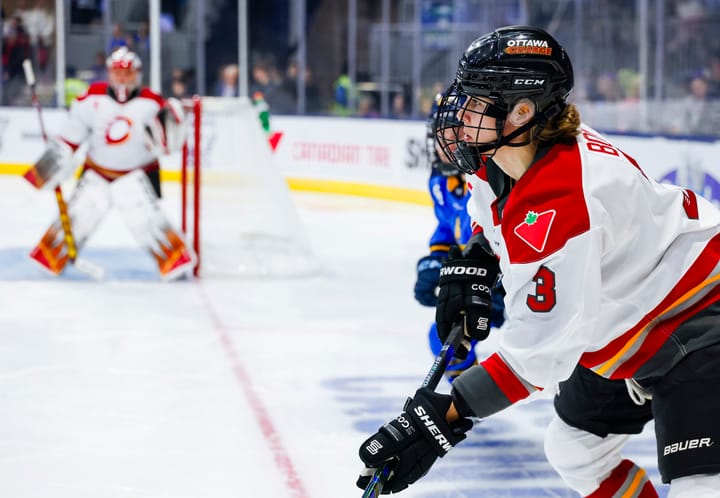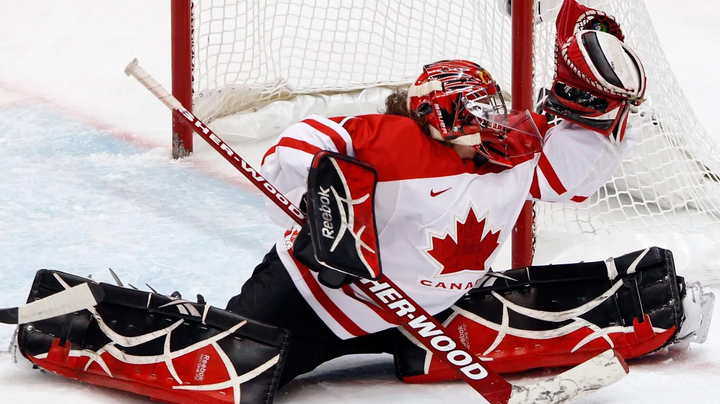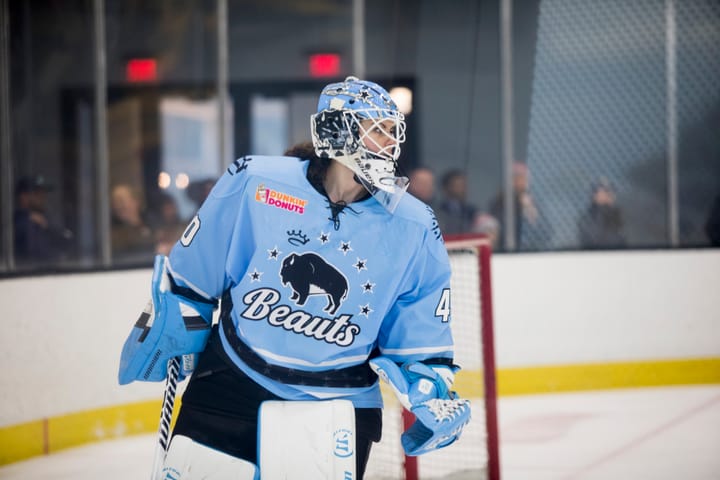Meeri Räisänen seeing success in her return to women’s hockey
After spending part of two seasons playing with men, the Team Finland goaltender is back in the women’s crease.
Meeri Räisänen had a choice.
She could continue down the path she helped forge and keep playing with men in the third-tier Suomi-Sarja league. Or, she could return to women’s hockey and bolster her chances at earning a roster spot at the PyeongChang Olympics in February. She chose the latter.
Räisänen signed with HPK Hämeenlinna and became the first goaltender to record a Naisten Liiga victory on September 16, 2017. She made 58 saves and earned HPK’s best player of the game honors. She also recently became the first Naisten Liiga Player of the Month, chosen by league representatives.
Räisänen, 27, made history when she became the third woman to play men’s hockey in Finland, after Hayley Wickenheiser and her Naisleijonat teammate Noora Räty. A special arrangement with the Finnish Ice Hockey Association allowed her to play with both men and women starting in 2015. That season she played nine games with the men’s D-Kiekko, then joined the women’s JYP for their playoff run all the way to an Aurora Borealis Cup victory.
In the 2016-2017 season Räisänen played eight games with Joensuun Kiekkokopla, then terminated her contract in order to rejoin JYP as they sought to qualify for the Naisten Liiga. She posted a .944 save percentage in six qualification games, but JYP fell short in their last game and KJT advanced instead.
“[The] last two season in men’s hockey taught me a lot. I got better in being a goalie,” Räisänen told The Ice Garden. “But because Olympics will of course be played at women’s hockey, I made a decision to play [with women.]”
So far it’s working. Räisänen has emerged as a star on a young HPK team, where she’s handling the workload with consistency, fire, and poise. She currently has a 1.99 goals-against average and a .947 save percentage in eight games this season.
On the international stage, Räisänen has shone for years. She represented Finland first on the U18 team all the way to the 2014 Sochi Olympics. She’s appeared in four World Championships, where she won a bronze medal in 2015 and was named an All-Star in 2015 and 2016.
Spending a year away from the national team steeled Räisänen’s determination to return to Team Finland. She used that time to focus on training, conditioning, and working on her game. The hard work paid off. She was one of 36 players invited to the Naisleijonat’s first Olympic camp this past May in Vierumäki, Finland.
While the Olympics remain at the forefront of Räisänen’s mind, she’s also very conscious of the changes taking place across Finland’s women’s hockey landscape: “Finnish women’s hockey has [gotten] so much better than before last Olympics,” she said. “It has got more attention from media - but not enough still.”
She, like other Naisleijonat players The Ice Garden has spoken to, points to Team Finland head coach Pasi Mustonen’s system overhaul as a big reason for the team’s recent success. Mustonen, hired after the last Olympics, became the first full-time coach in the team’s history at the start of the 2017-2018 season. His development plan focuses on a complete 360 approach to life on and off the ice, and so far it’s working. “He has done great work pushing people work harder and from that on play better,” Räisänen explained.
Home & Away
Räisänen lives and trains in Jyväskylä in central Finland, a little over two hours’ drive northeast of HPK’s base in Hämeenlinna. She works part-time and trains regularly with Jyväskylä’s A and B men’s junior teams while making the commute on weekends to join HPK.
When asked why she chose HPK over the Naisten Liiga’s other seven teams, she said,
“I couldn’t play here [in Jyväskylä], so I needed to find a team [who accept that] I practice with boys, because that makes me better, and [from there on] helps my teams to succeed. And HPK was the best option for that.”
6p weekend! Not heppened since... wait, hmm can't even remember. 🙈 #HPK #naistenliiga #enjoyingeveryminute
— Meeri Räisänen (@meeriraisanen) September 17, 2017
Her future is uncertain after the Olympics are over. Elite-level talent or not, Räisänen is still subjected to the harsh reality of not being paid to play professional hockey: “We don’t get paid at all, so I need to think if I start doing my half time job as full-time or will I still be playing or what I start doing,” she said. “I love playing, but when this is economically only my hobby, I can’t do it forever.”
That choice has yet to be made, but for now Räisänen is focused on her Olympic goal with pragmatism and pride. She’s ready to do the work and make the sacrifices. Her time is now.





Comments ()